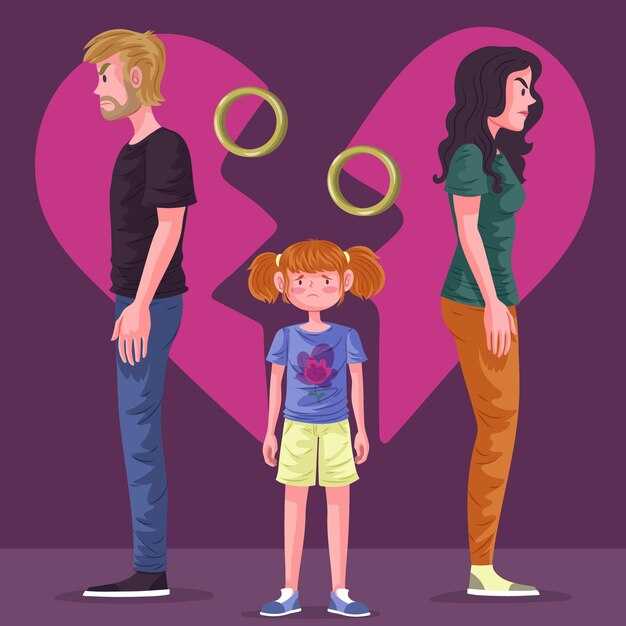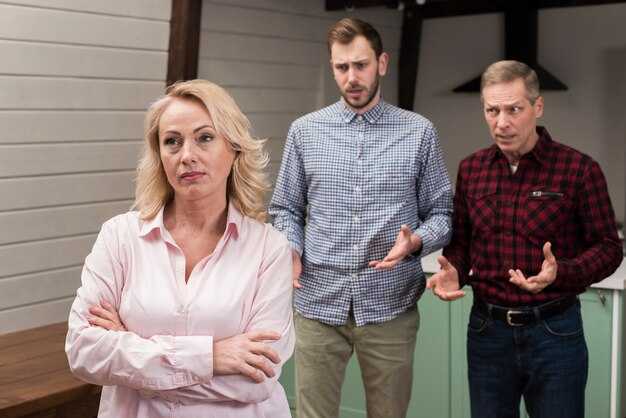When I was younger, single, and hoping to meet a steady man to marry and have children with—a longing I’d held since childhood—I somehow learned to hide that wish while dating, as if it were something shameful or private. The painful reality is this: if you want marriage and a family but keep dating people who don’t share that goal (or don’t want it with you), you won’t get what you want. Fortunately I worked this out and was able to radically heal the core self-sabotage that had been steering my life. So when I receive letters like the one I’m about to read, I have very direct, clear advice. If you want concrete guidance about creating the conditions to get married and have children, pay attention. I’ll refer to the writer of this letter as Alisa. She writes: Dear Crappy Childhood Fairy, am I being reasonable about my current relationship? I’m 29 and I have a reproductive condition that might make me infertile. I was diagnosed about four years ago and my doctor told me my best chance of having a healthy baby would be to get pregnant before I turn 30. You can see why I’m worried. Oh goodness, yes—there are so many things here I want to mark to return to on a second read, but let’s unpack Alisa’s situation. She says she grew up with an absent father and a mother who, out of necessity, became a workaholic. Mom remarried and my sister was born when I was a pre-teen, but I never liked my stepfather—he treated my mother poorly, had loud public outbursts, was verbally aggressive, and didn’t contribute meaningfully to the household finances, which only pushed my mother into working even more. They divorced by the time I finished college. I never saw a real, healthy example of a long-term relationship growing up, yet it’s always been my dream to be married and have that stable family for myself. Fast forward to now: I’m almost 30 and I don’t know what will happen with marriage or kids. My current partner already has a son and, for legal and financial reasons, he’s still married. At first our relationship felt cinematic—romantic dates, grand gestures, intense chemistry—but after about a year things shifted. He became irritable and would belittle me over small things. Conversations would end with me in tears over matters that seemed minor, and he accused me of playing the victim and overreacting. I struggle with depression and anxiety, so I often believed him. A few months ago he joined my family on a big international trip. I had organized our activities; as often happens in an unfamiliar country, a few things didn’t go according to plan and my family, being forgiving, quickly moved on from the mishaps. He, however, was quiet and closed off most of the trip, which increased my stress. A few days after we returned, he broke up with me. He started the conversation by saying he no longer felt the same about our future and was no longer interested in marriage or kids. After a long talk where I took the lead, he suggested reverting to casual dating to “work on things” and asked me to think about it. To me, the relationship had never been casual—so I interpreted this as a soft way to end things. I agreed and proposed ending things entirely for my own self-preservation: no casual dating. He attempted to call a few times at first, but I was hurt and convinced it was over, so I ignored him. About a month later he texted saying he was deeply sorry and regretted breaking up, claiming he didn’t mean what he’d said and had been lashing out under stress. He pledged to change and do whatever it took to repair the relationship. I accepted his apology but made it clear that marriage and children remained my goals; he said he was still open to them and admitted he had backtracked out of fear. We got back together and he has been kinder and more patient since, so I’ve seen real improvement. Yet I remain guarded and don’t feel the same excitement about our future as before. He’s been hesitant to finalize his divorce, which bothers me. On paper our relationship is practical for building a family, but I’m afraid it won’t last and that he’ll leave me again at the drop of a hat. I still hope for marriage, but the hope dims with each passing moment. We haven’t talked about his breakup since getting back together and I’m unsure how to voice these concerns—I don’t want to keep rehashing it or end up convincing him of my worth. Please help. That’s Alisa. Wow—there’s a lot here, and I truly sympathize, especially given the reproductive diagnosis and the doctor’s warning to try before 30. Even so, I don’t think pushing for marriage with someone who has already behaved this way makes sense right now. I do understand the confusion. Here’s what I heard from you: you had an absent father and a mother who was essentially absent because she had to work—whether you call her workaholic or not, it amounted to real neglect. Growing up neglected teaches you to tolerate neglect in relationships; you learn to fit yourself around unacceptable people and situations because you convince yourself you should adapt. At Crappy Childhood Fairy we have a term for that: we “crap-fit” ourselves to poor conditions, hoping that if we bend enough things will improve. But bending alone rarely changes the result. Your boyfriend’s relationship arc—passionate, charismatic early on, then a withdrawal—is common: initial romance often settles into a calmer phase after the first year. What worries me is that your conversations ended with you in tears and he dismissed your feelings as overreacting or playing the victim. Even if someone sometimes overreacts, people with complex PTSD can do that; it doesn’t justify a partner routinely calling you worse than you are. A partner who consistently seeks to make you feel small is a major red flag. The best partners validate what’s good in you and gently encourage you to be bolder; someone who tries to diminish you is damaging. Relationships are messy—everyone can be defensive or mistaken at times—and I get how hard it is to figure out who’s being fair when childhood trauma leaves you doubting your own reality. You also revealed that he’s been reluctant to finalize his divorce, and that is an easy boundary to set: don’t date people who haven’t formally closed their prior marriages. Finalizing a divorce is how someone signals they’re truly done with the past and ready to move forward. Excuses like “it’s just for the insurance” or “it’s for the kids” rarely work out well when you’re entering a new relationship. Another alarm bell was how he behaved on your family vacation: that setting is vulnerable because your family is extending hospitality and imagining a possible future with him, and he withdrawing and being cold in front of them was hurtful and weird. Then he broke up after the trip—perhaps he was realizing he couldn’t commit, but to do it that way was painful. When he came back after a month saying he didn’t mean it, that he regretted it and wanted to try again, that long silence feels suspicious. A month is a long time not to say anything; it raises the question of whether he was resolving things with an ex or exploring other options. I don’t want to plant poisonous ideas, but the behavior fits that pattern. Given your time pressure around having children, remember there are multiple ways to become a parent and 30 is not necessarily a strict cutoff. The most practical step you can take right now, which I promised at the start, is this: stop dating people who couldn’t possibly be the partner you need. That means not letting emotionally unavailable or unsuitable partners remain in your orbit. If your time and emotional energy are tied up in a shaky relationship, you’ll miss the chance to meet someone who is genuinely ready and excited to build a future with you. Learning to be selective is hard—especially when childhood wounds and attachment fears complicate a ticking biological clock—but it’s possible to apply clear guidelines. If you want, you can learn what I call structured dating: a disciplined approach to dating where you identify non-negotiables and only pursue people who could actually meet those requirements. It’s not rocket science, but for folks with trauma it helps to write these things down, follow a plan, and be part of a community that supports sticking to those principles. You will be surprised how quickly your dating life improves once you stop investing in people who can’t be the partner you need. I’ll leave you with that: structured dating, especially when you’ve experienced childhood PTSD, can give you practical tools for discernment. There are resources about the dating course—Dating and Relationships for People with Childhood PTSD—available right here, and I wish you clarity and courage moving forward. [Music]
Concrete next steps and practical guidance
If you want action, here is a compact, practical plan you can use immediately. Pick the items that fit your situation and write them out so the decisions feel real.
- Medical & fertility options — act now, intentionally: make an expedited appointment with a fertility specialist to get up-to-date testing (AMH, antral follicle count, and any condition-specific workup). Ask about timelines and realistic chances for pregnancy now versus options like egg freezing, IVF, donor eggs, or donor sperm. Getting clear medical information reduces panic and gives you options you control.
- Set a short, fair timeline for your partner: if his divorce isn’t finalized, give him a clear deadline (for example, 60–90 days) to show progress toward finalizing it and to be transparent about any barriers. If he can’t meet the deadline, consider that signal you need to step away to protect your timeline.
- Have a clarity conversation with a script: schedule a calm, sit-down talk. Example script: “I love you, and I want marriage and children. I need to know if you genuinely want that with me and what your realistic timeline is for finalizing your divorce and moving forward. If you’re unsure or can’t commit within X weeks, I need to make different choices for my life.” Use “I” statements, keep the time-limited request, and ask for his direct answer.
- Ask for concrete commitments, not promises: commitments should be measurable (e.g., file for divorce by X date, attend couples therapy weekly for three months, meet with a family-law attorney). Vague statements like “I’ll try” aren’t enough when your reproductive clock is involved.
- Protect yourself legally and financially: because he remains legally married, avoid co-signing leases, sharing bank accounts, or making legal commitments until his divorce is final and you have independent legal advice about any child or financial arrangements.
- Watch for red flags and green flags: red flags — persistent belittling, gaslighting, unexplained long silences, refusal to finalize divorce, secretive behavior, or refusal to do couples work. Green flags — consistent emotional safety, clear timeline progress, willingness to attend therapy, financial transparency, and keeping small promises reliably.
- Use structured dating if you decide to look outside this relationship: write three non-negotiables (e.g., wants children, emotionally available, not currently married). Screen early—ask direct questions in the first few dates. Limit time investment in people who fail those checks.
- Engage professional support: individual therapy (for complex PTSD/attachment work), couples therapy (if he commits), and a fertility counselor. A therapist can help you untangle childhood patterns that push you to tolerate inconsistency.
- Plan B family options: if time is short, consider parallel plans you can pursue while clarifying the relationship: fertility preservation (egg freezing), donor options, adoption research, or intentionally seeking partners who are already single and ready for kids. You don’t need to choose one path today, but knowing alternatives reduces the “all-or-nothing” pressure.
- Self-care and support: maintain a support network—friends, family, and community. Take small daily actions to reduce stress (sleep, brief exercise, meditation). Fertility anxiety is real; steady daily habits help you make clearer decisions.
How to have the conversation without re-traumatizing yourself
When you talk to him, keep the focus on facts, timelines, and requests for observable behavior. Avoid long emotional rehashes that leave you vulnerable to being dismissed. Use a short agenda you speak from and bring it up when you’re calm. Example structure: 1) state your goal (marriage/kids), 2) state your timeline, 3) ask his position and timeline, 4) request concrete next steps, 5) set a follow-up date to review progress. If he repeatedly sidesteps or gaslights you, that is data—act on it.
Sample follow-up timeline you could use
- Week 0: clarity conversation—get his honest answer and a proposed timeline. Share your medical timeline and your non-negotiable deadline for seeing tangible progress.
- Weeks 1–4: he provides evidence of steps (attorney consult, paperwork filed, therapy started). You continue your fertility workup.
- Week 6–12: evaluate whether agreements were kept. If not, choose to pause the relationship and redirect energy toward other options.
Considerações finais

You deserve a partner who tells the truth about what he wants and follows through. With a ticking biological clock and childhood wounds that teach you to tolerate neglect, structure and boundaries are your allies. Clear medical information, a short decision timeline, and concrete behavioral asks of your partner will reduce the chaos and help you make the choice that preserves your goals and dignity. You can want a family and insist on an emotionally safe path to it. Be brave about protecting your time and your future — that protection is an act of self-love, not selfishness.
If you want, write down your three non-negotiables right now, pick one phone call to make this week (to a fertility clinic or a therapist), and schedule that clarity conversation with him within the next 7–14 days. Small, decisive steps will create options, and options reduce panic.


 Se Casamento e Filhos são o Que Você Quer, Aqui Está o Que Fazer">
Se Casamento e Filhos são o Que Você Quer, Aqui Está o Que Fazer">

 Cheating isn’t the ONLY way we BETRAY each other.">
Cheating isn’t the ONLY way we BETRAY each other.">
 When the Anxious Partner Finally Breaks Free from the Avoidant">
When the Anxious Partner Finally Breaks Free from the Avoidant">
 Relationships are DOOMED without THIS!!">
Relationships are DOOMED without THIS!!">
 Por que Relacionamentos Só Funcionam Quando Você Tem Limites (Compilação de 4 Vídeos)">
Por que Relacionamentos Só Funcionam Quando Você Tem Limites (Compilação de 4 Vídeos)">
 7 Signs an Avoidant Partner Is Preparing to Leave (The Final One Hurts Most)">
7 Signs an Avoidant Partner Is Preparing to Leave (The Final One Hurts Most)">
 Se Você Trabalhar Duro para Curar, Mas a Felicidade Não Estiver à Vista, TENTE ISTO">
Se Você Trabalhar Duro para Curar, Mas a Felicidade Não Estiver à Vista, TENTE ISTO">
 Eu Salvei meu Relacionamento ao fazer ISSO">
Eu Salvei meu Relacionamento ao fazer ISSO">
 Como Enfrentar Sogros Tóxicos">
Como Enfrentar Sogros Tóxicos">
 The Secret to Getting What You Really WANT (and Stop Playing SMALL)">
The Secret to Getting What You Really WANT (and Stop Playing SMALL)">
 Aqui está o que é preciso para encarar a verdade e dar um passo à frente em sua vida">
Aqui está o que é preciso para encarar a verdade e dar um passo à frente em sua vida">